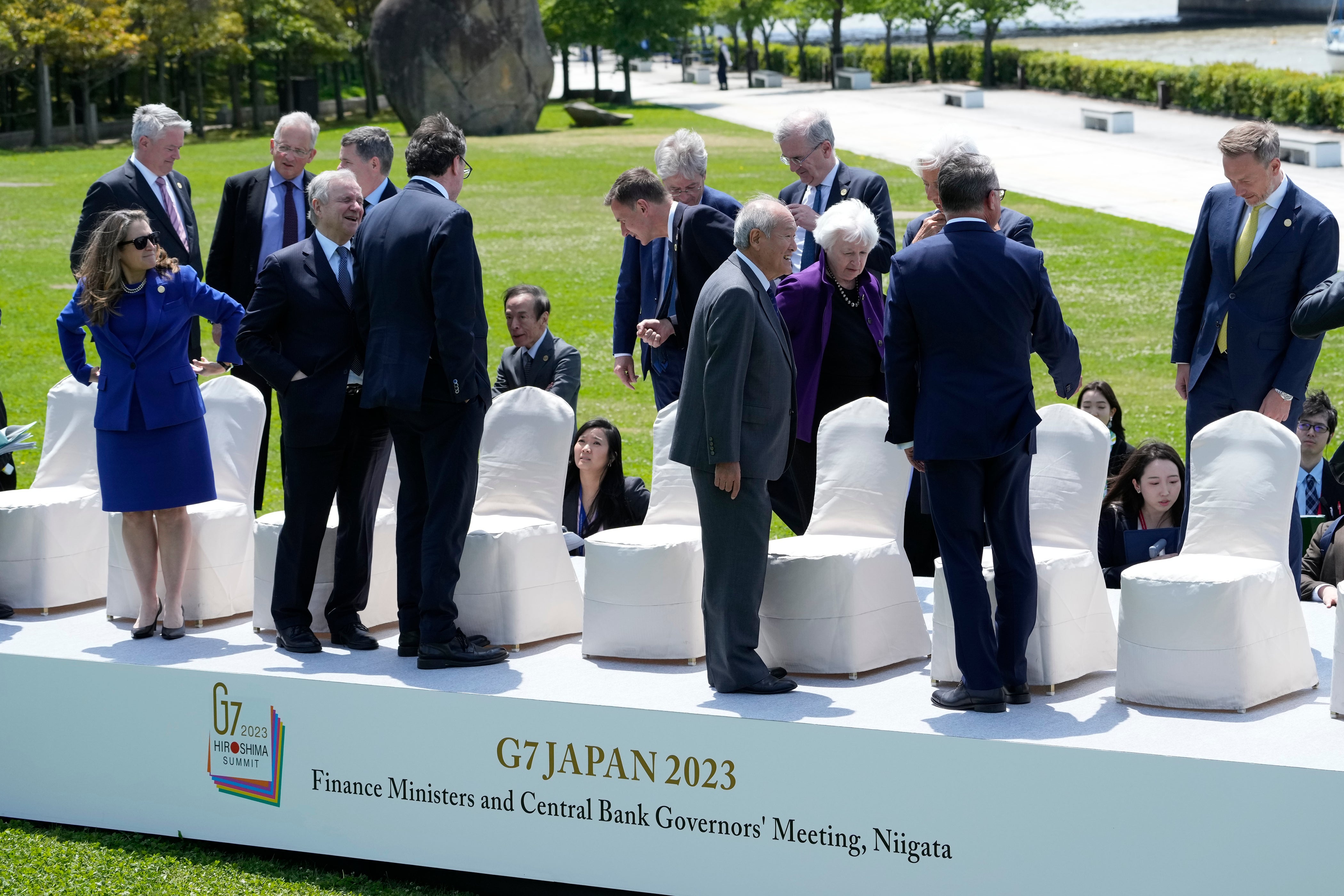With Ukraine losing ground, allies debate how to squeeze cash for Kyiv out of frozen Russian assets
Ukraine's allies are looking for ways to squeeze money out of frozen Russian assets and use the money to help Ukraine fend off Russia's invasion

Your support helps us to tell the story
From reproductive rights to climate change to Big Tech, The Independent is on the ground when the story is developing. Whether it's investigating the financials of Elon Musk's pro-Trump PAC or producing our latest documentary, 'The A Word', which shines a light on the American women fighting for reproductive rights, we know how important it is to parse out the facts from the messaging.
At such a critical moment in US history, we need reporters on the ground. Your donation allows us to keep sending journalists to speak to both sides of the story.
The Independent is trusted by Americans across the entire political spectrum. And unlike many other quality news outlets, we choose not to lock Americans out of our reporting and analysis with paywalls. We believe quality journalism should be available to everyone, paid for by those who can afford it.
Your support makes all the difference.Ukraine's allies are wrestling with how to squeeze money out of frozen Russian assets to support Kyiv's war effort, a debate that is ever more urgent as Russia gains territory on the battlefield and as the outlook for Ukraine’s state finances looks shakier.
What to do with the Russian central bank reserves frozen in response to the invasion of Ukraine is at the top of the agenda as finance officials from the Group of Seven rich democracies meet Thursday through Saturday in Stresa, Italy, on the shores of scenic Lago Maggiore.
The issue: While Ukraine and many of its supporters have called for the confiscation of $260 billion in Russian assets frozen outside the country after the February 24, 2022, invasion, European officials have resisted, citing legal and financial stability concerns. Most of the frozen assets are located in Europe.
Yet a European plan to merely use the interest on the Russian funds would provide only a trickle of money every year — some $2.5 billion-$3 billion at current interest rates. That would barely meet a month's financing needs for the Ukrainian government.
U.S. Treasury officials and outside economists are proposing ways to turn that annual trickle into a much larger chunk of upfront cash. That could done be through a bond that would be repaid by the future interest income, giving Ukraine the money immediately. The ministers meet with Ukrainian Finance Minister Sergii Marchenko on Saturday.
U.S. Treasury Secretary Janet Yellen said during a speech Monday in Frankfurt, Germany, that “it’s vital and urgent that we collectively find a way forward to unlock the value of Russian sovereign assets in our jurisdictions for the benefit of Ukraine.”
The debate is being revived after President Joe Biden in April signed into law the Rebuilding Economic Prosperity and Opportunity for Ukrainians Act, which allows the administration to seize the roughly $5 billion in Russian state assets located in the U.S. The law was included in the U.S. aid package for Ukraine and other nations, which includes roughly $61 billion for Ukraine’s defense.
Ukraine spends almost the entirety of its tax revenue on the military and needs another $40 billion a year to continue paying old-age pensions and the salaries of doctors, nurses and teachers — the glue that holds society together under dire wartime circumstances. Support from allies and a $15.4 billion loan from the International Monetary Fund was initially thought to have secured the budget for four years, but the prospects of an extended conflict have darkened the outlook.
Ukraine depends on its allies for that money because the war keeps the government from accessing international bond market borrowing. The alternative would be printing money at the central bank, which risks igniting hyperinflation.
Thanks to EU support and the U.S. aid package, passed after months of delay, this year’s budget “looks decent in terms of budget financing” but “next year is going to be much more challenging,” said Benjamin Hilgenstock, senior economist at the Kyiv School of Economics Institute.
The ministers will seek to build consensus ahead of the June 13 summit of G7 national leaders summit in Italy.
Yellen will also talk during the three-day meeting about China’s outsized, state-backed production of green energy technology, which the U.S. considers a threat to the global economy. It has been a little more than a month since she traveled to China to speak with her counterparts in Guangzhou and Beijing about the nation’s massive subsidies to its electric vehicles, batteries, solar energy equipment and other products.
Since then, the U.S. has imposed major new tariffs on electric vehicles, semiconductors, solar equipment and medical supplies imported from China. Included is a 100% tariff on Chinese-made EVs, meant to protect the U.S. economy from cheap Chinese imports.
A Treasury spokesperson who talked on the condition of anonymity to preview the meetings, also said the finance ministers would also discuss humanitarian aid for Gaza, and would use bilateral meetings to talk about Iran’s destabilizing actions in the Middle East through proxies.
The G7 are: Canada, France, Germany, Italy, Japan, the United Kingdom, and the United States. Representatives of the European Union also take part but the EU does not serve as one of the annually rotating chairs.
___
Follow AP's coverage at https://apnews.com/hub/russia-ukraine